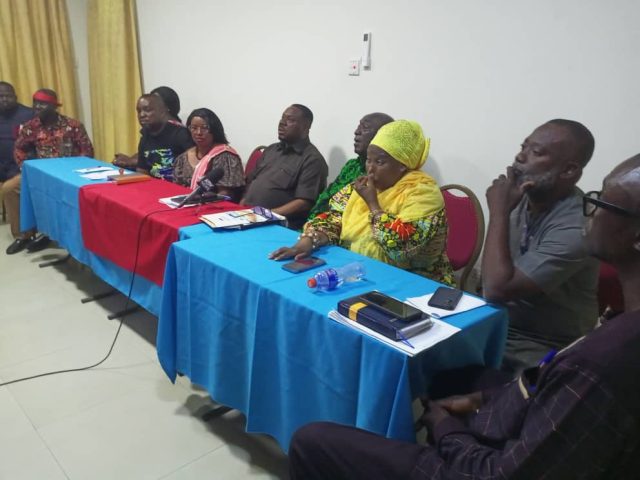A brewing labor dispute threatens to paralyze operations at Ghana’s public universities as the Teachers and Educational Workers Union (TEWU-TUC) vows to resist the Ghana Tertiary Education Commission’s engagement with a splinter group.
The conflict centers on GTEC’s recent interactions with TEWU-GH, a breakaway faction with significantly smaller membership, regarding representation on university governing councils.
At a tense press conference in Accra, TEWU-TUC General Secretary King James Azortibah presented compelling membership statistics to justify his union’s claim as the legitimate representative body. “While we represent over 80,000 workers nationwide, this new group claims just 2,500 members,” Azortibah stated. “GTEC’s apparent endorsement of TEWU-GH undermines established labor structures and could destabilize industrial harmony across our campuses.”
The dispute has drawn in the national Trade Union Congress, with Secretary-General Joshua Ansah warning that recognizing TEWU-GH sets a dangerous precedent. “This challenges the very framework of labor representation in Ghana,” Ansah emphasized. Both leaders accused GTEC Director-General Professor Ahmed Abdulai Jinapor of partiality, suggesting his actions could trigger widespread campus disruptions if unresolved.
The standoff reflects deeper tensions in Ghana’s education sector regarding worker representation and governance. TEWU-TUC maintains its constitutional mandate as the umbrella body for non-teaching staff across tertiary institutions, while the emergence of TEWU-GH signals possible dissatisfaction with existing representation structures.
As the impasse continues, stakeholders await GTEC’s response. The Commission faces mounting pressure to convene urgent mediation talks to prevent the threatened industrial action, which could disrupt academic activities nationwide. The outcome may redefine labor relations in Ghana’s tertiary education sector and test the boundaries of union representation in public institutions. With neither side showing signs of backing down, the conflict threatens to escalate unless swift, neutral intervention occurs.
Send your news stories to newsghana101@gmail.com
Follow News Ghana on Google News









![“It’s hard to say goodbye” – Christian Atsu’s wife composes emotional tribute song for him [Video]](https://ghananewss.com/storage/2023/05/Christian-atsu-and-wife-100x75.jpeg)








